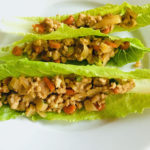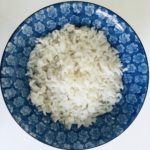If you have celiac disease, are gluten intolerant or have a wheat allergy, you cannot eat the following grains, or foods that contain them.
Wheat
Wheat is a staple food in most of the world, but for many people, it is hard to digest, or even toxic. Avoiding wheat is difficult, because it is the main ingredient in baked goods, pastas, pizzas, crackers, desserts and as a thickener in many processed foods. If you are on a gluten-free or wheat-free diet, avoid all of the following forms of wheat:
- Anything with the word “wheat” in it (except buckwheat and distilled wheat, which are gluten-free)
- Flour (unless it says gluten-free flour, or is made purely from a non-gluten source, like rice flour)
- Durum
- Farina
- Bulgur
- Matzoh
- Cous-cous
- Semolina
- Emmer
- Eikorn
- Farro
- Graham
Spelt
Spelt is closely related to wheat, and not suitable for people who must be gluten-free. Spelt is often marketed as a ‘wheat substitute’ that can be tolerated by people with a wheat allergy rather than a gluten intolerance.
Kamut
Kamut is a trademark name for a species of wheat that is an ancient relative of durum wheat. Like spelt, there are claims that kamut can be tolerated by people with a wheat allergy rather than a gluten intolerance. It is recommended that kamut be avoided by those on a gluten-free diet.
Triticale
Triticale is a man-made hybrid of rye and wheat, bred for its higher protein content. Because triticale is such a close relative of wheat, it is considered unsafe for a gluten-free or wheat-free diet.
Barley
Barley is a cereal grain used in bread and cookies. Barley is the main ingredient in beer. Malt flavoring, syrup or extract is derived from barley and is often added to commercial breakfast cereals. Malt vinegar also contains barley. Barley is considered wheat-free but not gluten-free.
pharmacy rx one – cheappharmacy-plusdiscount – norton email error canadian pharmacy – davita pharmacy
Rye
Rye is closely related to barley and wheat, and is not considered gluten-free. Rye flour can be found in rye bread. Rye can also be found in some beers. Distilled rye, as found in some alcohols, is considered gluten-free (due to the distillation process).
Oats
Oats are a cereal grain not closely related to wheat. Oats are commonly used as rolled oats, oatmeal, and oat flour. The Gluten Intolerance Group of North America’s position on oats is that pure, uncontaminated oats in moderation (1 cup cooked) daily are safe for most persons with celiac disease. However, most oats are harvested and milled in the same facility with glutenous grains, mainly wheat. Most commercially available oat-containing foods, such as granola bars or cereal, are made with contaminated oats. Therefore, unless buying oats from a source that is not contaminated with wheat, oats are considered unsafe for those allergic to wheat or gluten intolerant. Two sources for gluten free oats are Gluten Free Oats and Gifts of Nature.






what people are talking about